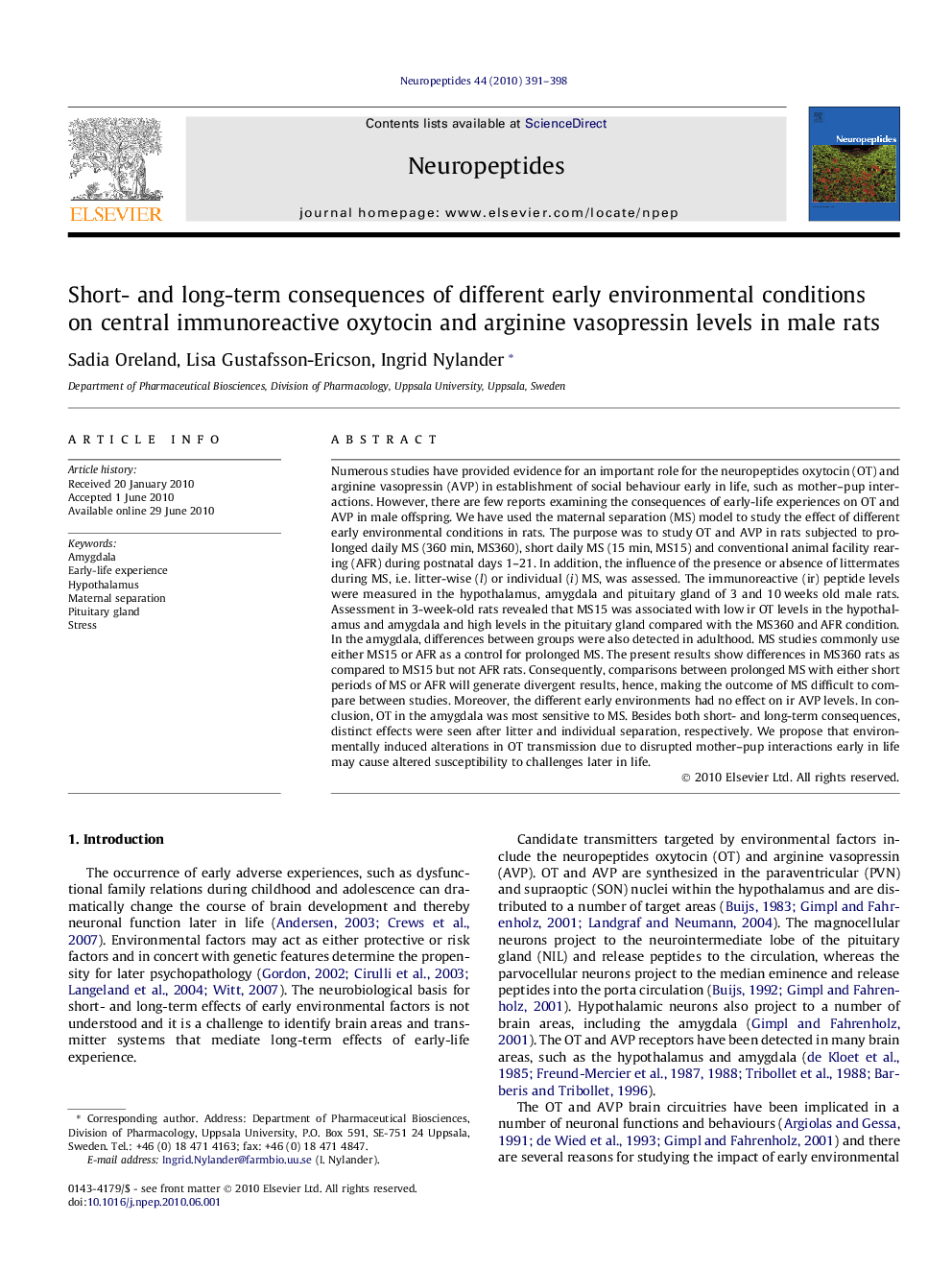| Article ID | Journal | Published Year | Pages | File Type |
|---|---|---|---|---|
| 2808206 | Neuropeptides | 2010 | 8 Pages |
Numerous studies have provided evidence for an important role for the neuropeptides oxytocin (OT) and arginine vasopressin (AVP) in establishment of social behaviour early in life, such as mother–pup interactions. However, there are few reports examining the consequences of early-life experiences on OT and AVP in male offspring. We have used the maternal separation (MS) model to study the effect of different early environmental conditions in rats. The purpose was to study OT and AVP in rats subjected to prolonged daily MS (360 min, MS360), short daily MS (15 min, MS15) and conventional animal facility rearing (AFR) during postnatal days 1–21. In addition, the influence of the presence or absence of littermates during MS, i.e. litter-wise (l) or individual (i) MS, was assessed. The immunoreactive (ir) peptide levels were measured in the hypothalamus, amygdala and pituitary gland of 3 and 10 weeks old male rats. Assessment in 3-week-old rats revealed that MS15 was associated with low ir OT levels in the hypothalamus and amygdala and high levels in the pituitary gland compared with the MS360 and AFR condition. In the amygdala, differences between groups were also detected in adulthood. MS studies commonly use either MS15 or AFR as a control for prolonged MS. The present results show differences in MS360 rats as compared to MS15 but not AFR rats. Consequently, comparisons between prolonged MS with either short periods of MS or AFR will generate divergent results, hence, making the outcome of MS difficult to compare between studies. Moreover, the different early environments had no effect on ir AVP levels. In conclusion, OT in the amygdala was most sensitive to MS. Besides both short- and long-term consequences, distinct effects were seen after litter and individual separation, respectively. We propose that environmentally induced alterations in OT transmission due to disrupted mother–pup interactions early in life may cause altered susceptibility to challenges later in life.
